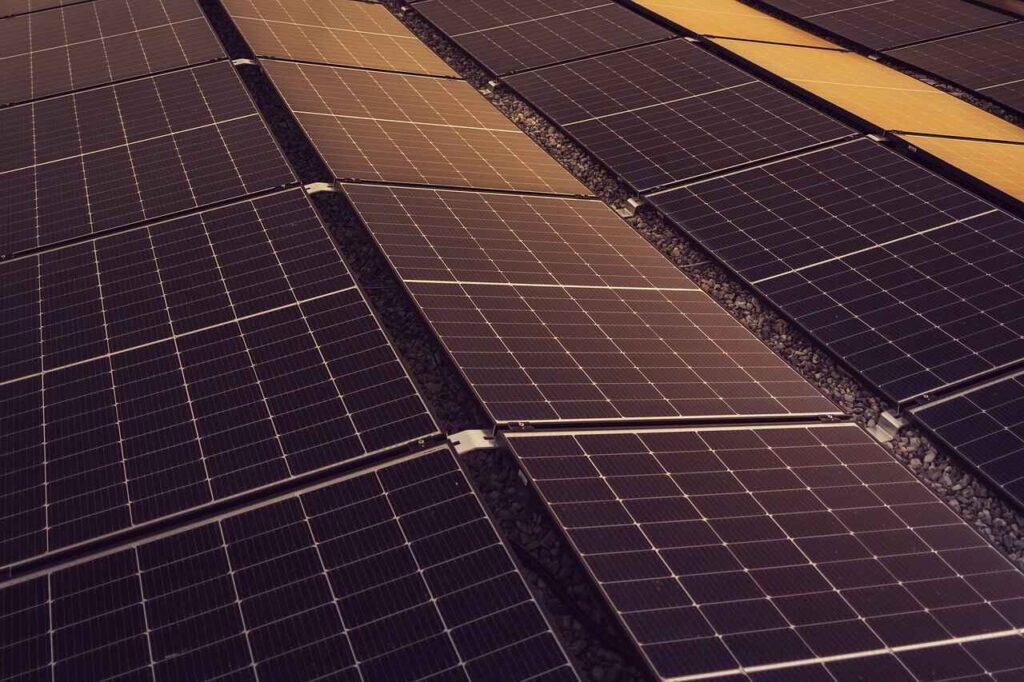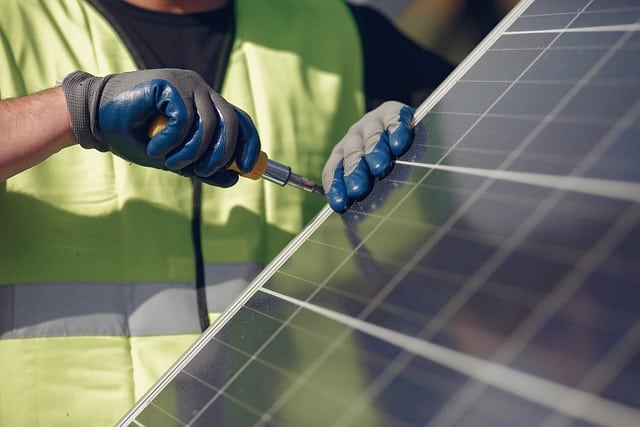How Much is Solar Panels in Ghana: Affordable Green Energy
Solar panels in Ghana typically cost between $500 and $1,000 per panel. Prices vary based on brand, efficiency, and installation fees.
Solar energy is becoming increasingly popular in Ghana due to its sustainability and cost-effectiveness. Many households and businesses are switching to solar power to reduce electricity bills and minimize environmental impact. The initial investment in solar panels can be high, but the long-term savings and benefits make it worthwhile.
Various factors, including the size of the system and the quality of components, influence the overall cost. Investing in solar panels not only supports renewable energy but also contributes to energy independence and economic growth in Ghana.

Introduction To Solar Energy In Ghana
Ghana is embracing solar energy. Solar power provides a cleaner and cheaper energy source. The cost of solar panels in Ghana varies but is becoming affordable. With more sunlight, Ghana is perfect for solar energy solutions.
Rising Demand
The demand for solar energy in Ghana is rising. Many households switch to solar power for reliable energy. Businesses also invest in solar to cut costs and ensure a steady power supply.
Here are some reasons for rising demand:
- Frequent power outages make solar a reliable choice.
- Solar energy reduces electricity bills.
- Environmental concerns drive people to choose clean energy.
Cost Of Solar Panels In Ghana
The cost of solar panels in Ghana varies widely. Understanding the price range and the factors influencing costs helps in making informed decisions.
Price Range
The price of solar panels in Ghana ranges from GHS 500 to GHS 15,000. This depends on the type and size of the system.
| System Size | Price (GHS) |
|---|---|
| 1kW | 500 – 1,500 |
| 3kW | 1,500 – 4,500 |
| 5kW | 4,500 – 7,500 |
| 10kW | 7,500 – 15,000 |
Factors Influencing Cost
Several factors influence the cost of solar panels in Ghana. These include:
- System Size: Larger systems cost more.
- Type of Panels: Monocrystalline panels are more expensive than polycrystalline.
- Installation Costs: Professional installation adds to the overall cost.
- Brand: Premium brands come with a higher price tag.
Types Of Solar Panels Available
Choosing the right solar panel for your needs in Ghana is crucial. There are different types of solar panels. Each type has unique features and benefits.
Monocrystalline Panels
Monocrystalline panels are made from a single crystal structure. They are known for their high efficiency. These panels work well even in low light conditions. They have a long lifespan and are more efficient than other types.
| Feature | Description |
|---|---|
| Efficiency | High |
| Lifespan | 25 years or more |
| Appearance | Black, sleek look |
Polycrystalline Panels
Polycrystalline panels are made from multiple crystal structures. They are less efficient than monocrystalline panels. These panels are more affordable and have a shorter lifespan. They perform best in direct sunlight.
- Efficiency: Moderate
- Lifespan: 20-25 years
- Appearance: Blue, less uniform look
Thin-film Panels
Thin-film panels are made by placing a thin layer of photovoltaic material on a surface. They are the least efficient but are lightweight and flexible. These panels are ideal for unique applications. They have a shorter lifespan and require more space.
- Efficiency: Low
- Lifespan: 10-20 years
- Appearance: Flexible, can be black or transparent
Installation Costs And Considerations
Installing solar panels in Ghana involves several costs and considerations. These include labour costs and site assessment. Understanding these factors helps in budgeting and planning effectively.

Labor Costs
Labour costs vary based on the installation company’s expertise. Skilled workers charge higher fees for their services. The cost usually ranges between GHS 500 and GHS 2,000. This can depend on the complexity of the installation.
Some companies offer package deals. These include both the solar panels and the installation costs. Always get multiple quotes. This ensures you get the best value for your money.
Site Assessment
A site assessment is crucial before installing solar panels. Experts evaluate the location to ensure it receives adequate sunlight. They also check the roof condition and structure.
The assessment usually costs around GHS 200 to GHS 500. This fee ensures that the site is suitable for installation. A good assessment can save money in the long run.
Here are some key factors assessed:
- Sunlight exposure
- Roof angle and orientation
- Shading from trees or buildings
- The structural integrity of the roof
Proper site assessment ensures maximum efficiency of the solar panels. It also minimizes future maintenance costs.
Benefits Of Solar Energy
Solar energy offers numerous advantages for households and businesses in Ghana. It’s a renewable source that can significantly reduce electricity costs and environmental impact. Let’s explore some key benefits of solar energy.
Environmental Impact
Solar panels produce clean, renewable energy. This reduces the reliance on fossil fuels. Fossil fuels pollute the air and contribute to climate change. Solar energy helps to lower carbon footprints. By using solar panels, you help to protect the environment.
Solar energy also reduces water usage. Traditional power plants use a lot of water. They need water to cool down their systems. Solar panels do not need water to generate electricity. This helps to save water, which is a precious resource.
Cost Savings
Solar panels can save you money on electricity bills. Once installed, they produce free electricity. You can reduce or even eliminate your electricity costs. The initial cost of solar panels can be high, but they pay for themselves over time.
Let’s look at a simple table to understand the cost savings:
| Year | Electricity Cost Without Solar (GHS) | Electricity Cost With Solar (GHS) |
|---|---|---|
| 1 | 2,500 | 1,000 |
| 2 | 2,600 | 1,000 |
| 3 | 2,700 | 1,000 |
| 4 | 2,800 | 1,000 |
| 5 | 2,900 | 1,000 |
As shown, the savings increase over time. The reduction in electricity costs can be significant. Solar panels are a great investment for long-term savings.
- Save money on electricity bills
- Reduce environmental impact
- Lower water usage
Investing in solar panels in Ghana is a wise choice. It offers both economic and environmental benefits. Make the switch to solar energy today for a better future.
Challenges And Barriers
Switching to solar panels in Ghana offers many benefits. But, there are also challenges and barriers. These obstacles can hinder adoption and growth.
Initial Investment
The initial cost of solar panels can be high. Many people in Ghana cannot afford the upfront cost. This expense includes purchasing panels and installation fees.
Here is a breakdown of the initial investment:
| Item | Cost (GHS) |
|---|---|
| Solar Panels | 5,000 – 15,000 |
| Inverter | 2,000 – 5,000 |
| Battery Storage | 3,000 – 10,000 |
| Installation | 1,500 – 3,000 |
Many families find it hard to gather this money upfront. This financial burden can discourage potential buyers.
Technical Expertise
Installing solar panels needs technical expertise. Not everyone has the skills to set up a solar system. Qualified installers are few in Ghana. This scarcity adds to the cost and complexity.
To ensure proper installation, consider the following steps:
- Hire certified technicians
- Ensure regular maintenance
- Attend training workshops
Without proper expertise, systems can fail. This risk can deter people from investing in solar panels. Proper training and support are crucial for success.
Future Of Solar Energy In Ghana
The future of solar energy in Ghana looks very bright. Technological advancements and policy changes are driving growth. Solar panels are becoming more affordable and efficient. Government initiatives also support solar energy adoption. This makes solar energy a viable option for many Ghanaians.
Technological Advancements
New technologies are making solar panels more efficient. This means that panels can generate more power from the same amount of sunlight. Efficiency improvements lead to cost savings over time. The latest solar panels are also more durable and long-lasting.
Storage technology is also improving. Better batteries mean that stored solar energy can be used when the sun is not shining. This ensures a more reliable power supply for homes and businesses.
Here are some recent technological advancements:
- Higher-efficiency solar cells
- Advanced battery storage systems
- Smart grid integration
Frequently Asked Questions
How Much Does A Solar Panel Cost In Ghana?
The cost of a solar panel in Ghana varies. On average, prices range from GHS 1,500 to GHS 5,000. Factors like brand, capacity, and installation affect the total cost.
Are Solar Panels Worth The Investment In Ghana?
Yes, solar panels are worth the investment in Ghana. They reduce electricity bills and provide a reliable power source. Additionally, they are environmentally friendly.
What Factors Affect Solar Panel Prices In Ghana?
Several factors affect solar panel prices in Ghana. These include brand, capacity, quality, and installation costs. Import taxes and local demand also influence prices.
How Long Do Solar Panels Last In Ghana?
Solar panels in Ghana typically last 25 to 30 years. Proper maintenance can extend their lifespan. Most manufacturers offer warranties for 20 to 25 years.
Conclusion
Solar panels in Ghana offer a cost-effective and sustainable energy solution. Prices vary based on size and quality. Investing in solar panels can reduce electricity bills and benefit the environment. Research and compare options to find the best deal. Embrace renewable energy for a brighter future in Ghana.
